Ketone supplements used at Jumbo-Visma
'The substance is not on the prohibited list' says Plugge
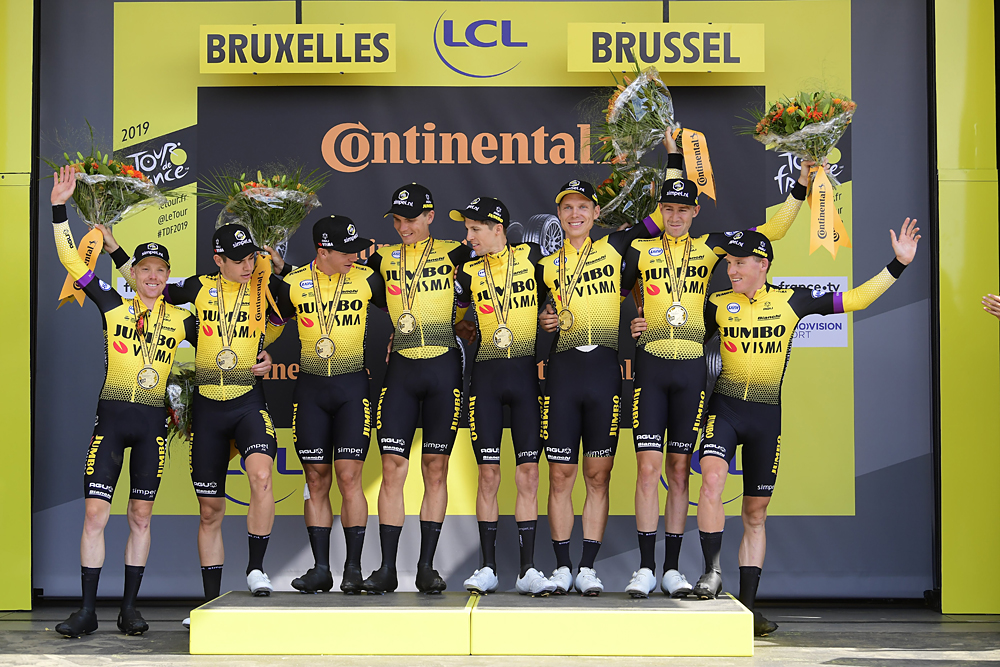
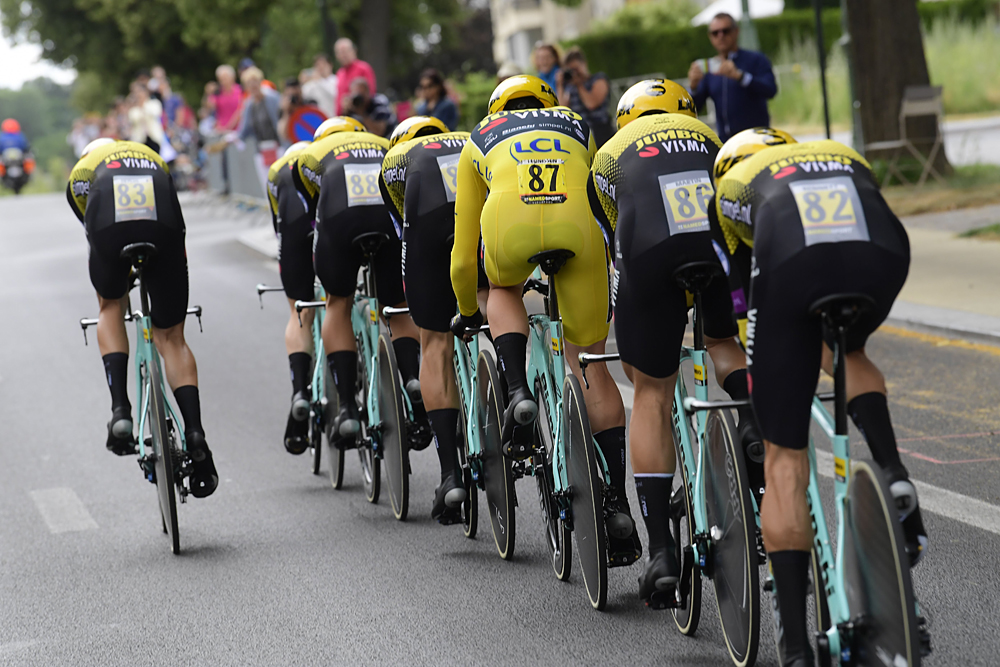
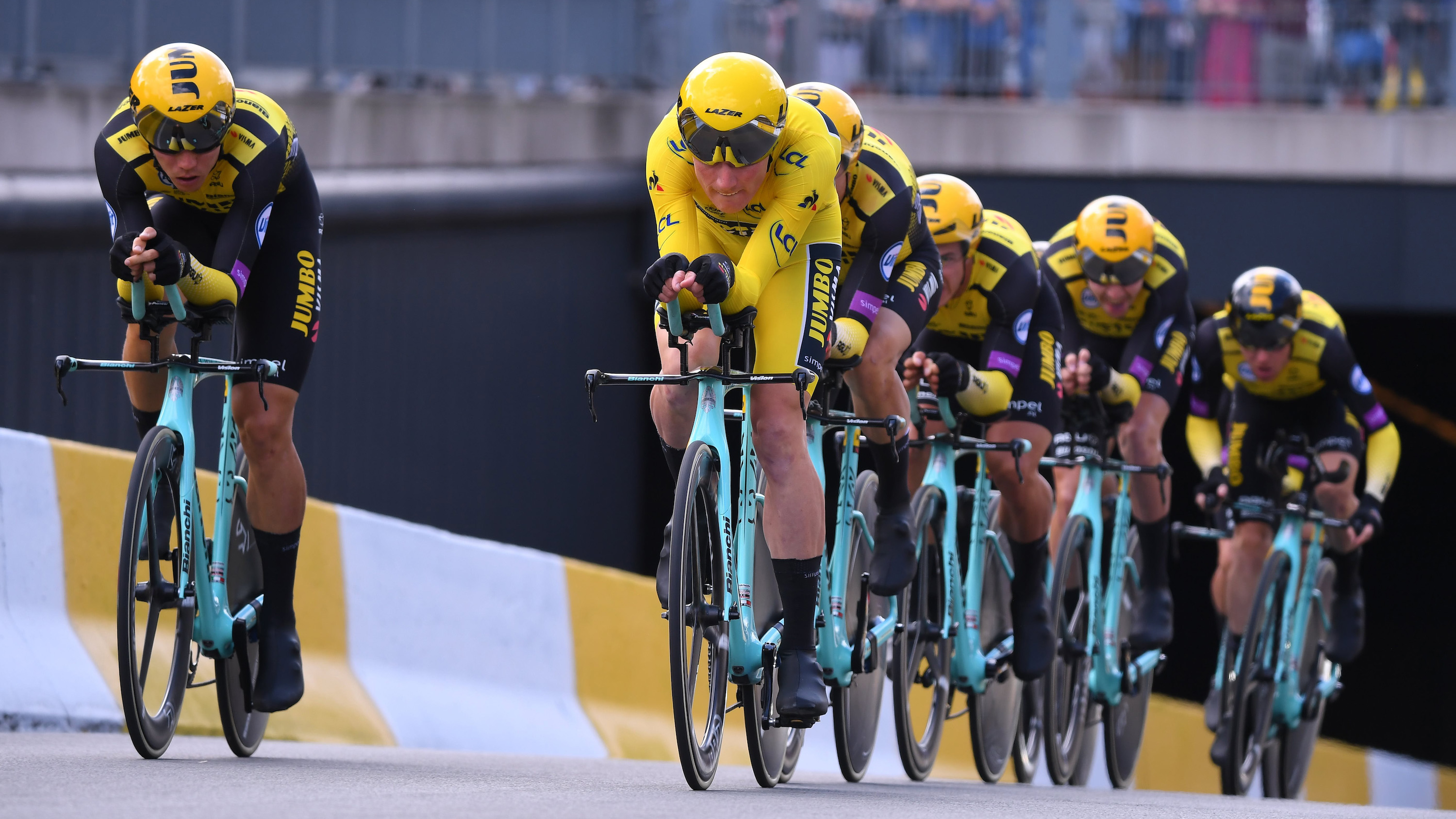
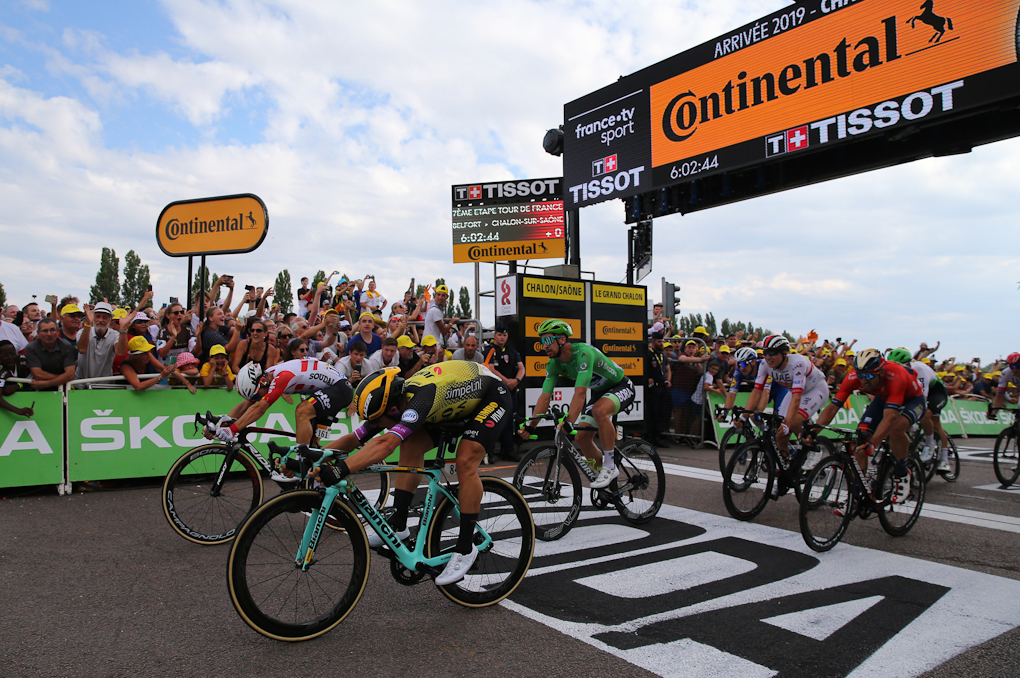
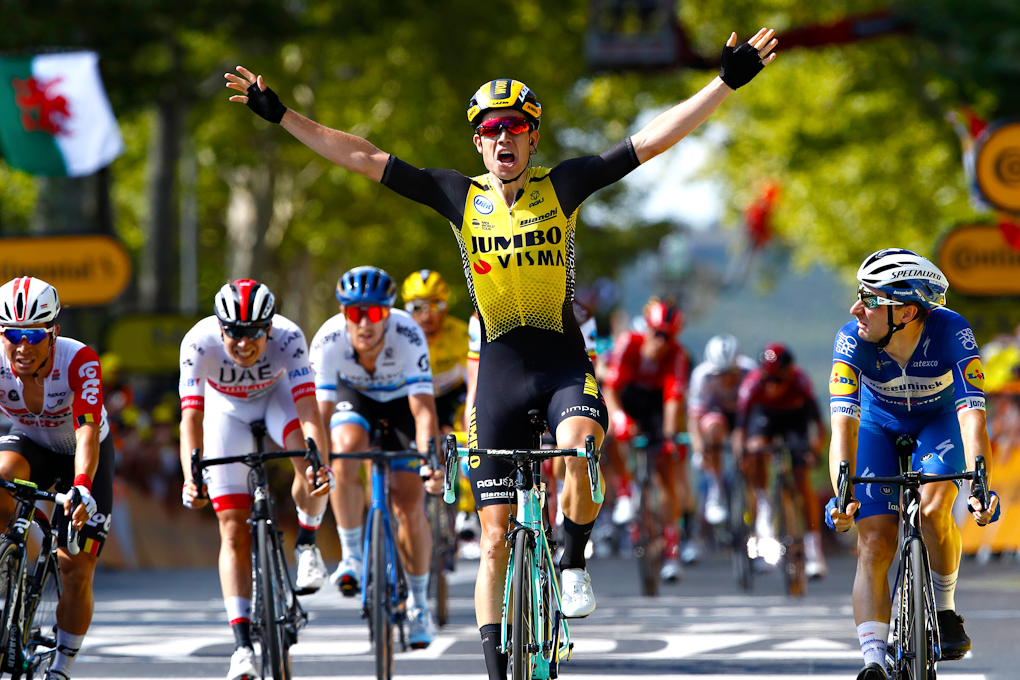
Jumbo-Visma are the latest team linked to the use of the dietary supplement ketones that are thought to improve recovery for endurance athletes. Team manager Richard Plugge confirmed that his riders use the supplement in a report published in De Telegraaf on Monday.
"Ketones are a dietary supplement. You can use them just like vitamins. The substance is not on the prohibited list, and it's also known that other teams use ketones," Plugge told the Dutch news outlet.
The Dutch team have had 39 victories this year, with their most recent string of success at the Tour de France, where Mike Teunissen won stage 1 and took the race's first yellow jersey. They then won the stage 2 team time trial, sprinter Dylan Groenewegen won stage 7, and Wout van Aert won stage 10 on Monday.
Ketones are produced by the liver once there are no carbohydrates to burn, and fat stores begin to burn. Synthetic ketone supplements, used in conjunction with a low-carb diet, are thought to provide an added energy source that helps preserve glycogen storage, reduce lactic acid and aid in recovery.
A recent study out of the University of Leuven in Belgium links ketone supplements to a 15 per cent increase in performance for endurance athletes. According to De Telegraaf, Professor Peter Hespel had 16 subjects ride a mini Tour de France while ingesting ketones, and later said that the substance had an "unprecedented effect on recovery", but the "performance capacity also increases considerably".
The use of ketones among the professional peloton has been linked to several WorldTour teams in recent years, dating back to the 2012 Olympic Games in London. It has also been suggested that ketone supplements have been used at the Team Sky and QuickStep teams in previous years.
In July 2015, Sporza reported that Belgian coach Paul van den Bosch suggested that Chris Froome use ketone supplements. At that time, however, Team Sky team manager Dave Brailsford denied to Cyclingnews that his riders had ever used ketones. Froome also denied that he'd had such a conversation with Van den Bosch.
The latest race content, interviews, features, reviews and expert buying guides, direct to your inbox!
"I just touched base with him, talked about Team Sky and myself, about using ketones drink," Froome explained at the time. "That's crazy. I had to Google it to find out what it is. But I can say 100% that the team does not use ketones."
But according to Kieran Clarke, the British scientist who invented the ketone supplement, upwards of six teams were using ketones as a dietary supplement during the 2018 Tour de France.
Hespel, who works closely with Patrick Lefevere's Deceuninck-QuickStep team, pointed to the use of ketone supplements as being "probably a piece of the puzzle" to the Belgian team's success. The team ended the season last year with 73 victories.
Ketone supplements are legal for athletes to consume because they are not on the World Anti-Doping Agency's list of banned substances. Professor Peter van Eenoo of the DoCoLab in Ghent told De Telegraaf that studies into the effects of ketone supplements are still in their infancy stages.
"As long as the negative effects cannot be demonstrated immediately, it will not be on the doping list either," Van Eenoo said. "I assume that many top athletes use ketones. The [supplement] is available, and more and more sports doctors and physiologists recommend it."
Because there is little known about the effects of ketone supplement use – whether there are effects on performance or adverse health effects – Sunweb team doctor Anko Boelens has told De Telegraaf that riders do not use the supplements on his team.
"We think there should be more clarity about the effects of this medicine on the health of the athlete in the long term," Boelens said. "In addition, there is much uncertainty about the efficacy. There are even studies that show that it has a negative effect on sports performance. That the remedy would only be good for recovery. We want to be sure that we will not harm our riders. "

Kirsten Frattini is the Deputy Editor of Cyclingnews, overseeing the global racing content plan.
Kirsten has a background in Kinesiology and Health Science. She has been involved in cycling from the community and grassroots level to professional cycling's biggest races, reporting on the WorldTour, Spring Classics, Tours de France, World Championships and Olympic Games.
She began her sports journalism career with Cyclingnews as a North American Correspondent in 2006. In 2018, Kirsten became Women's Editor – overseeing the content strategy, race coverage and growth of women's professional cycling – before becoming Deputy Editor in 2023.